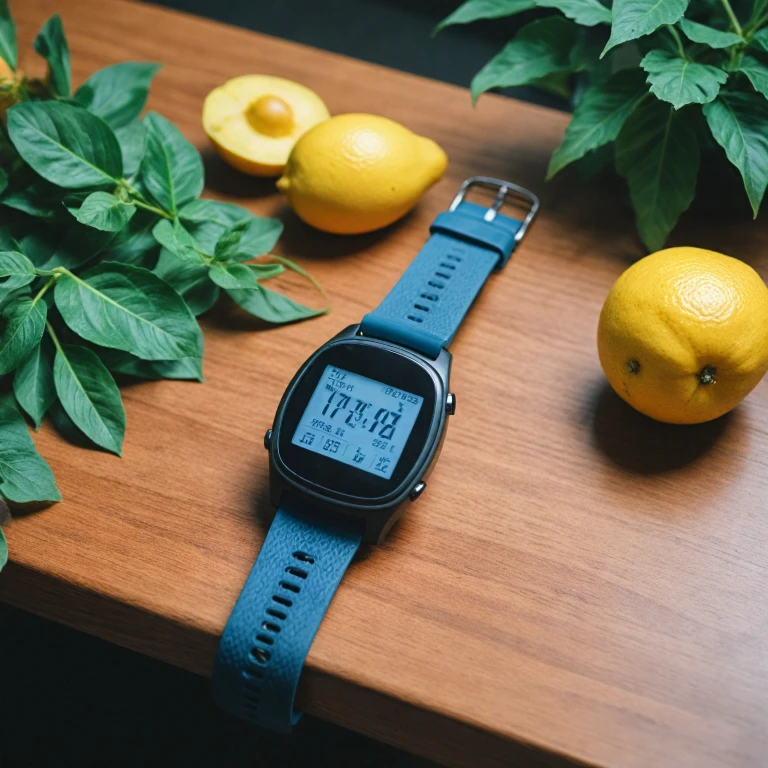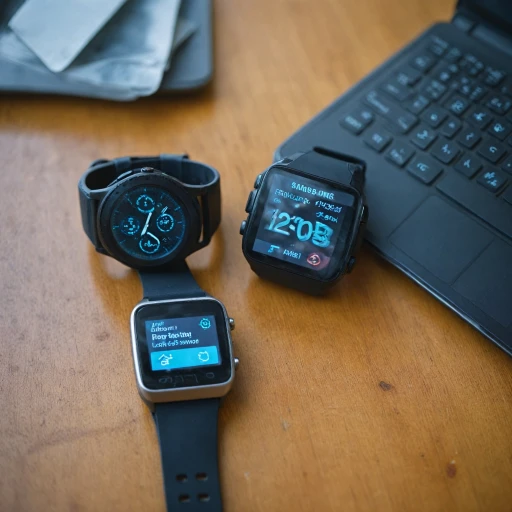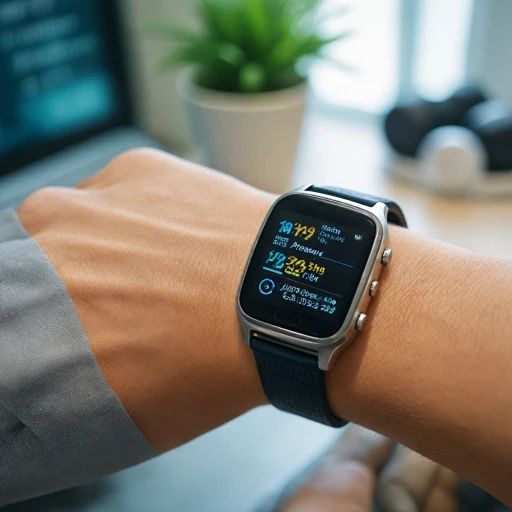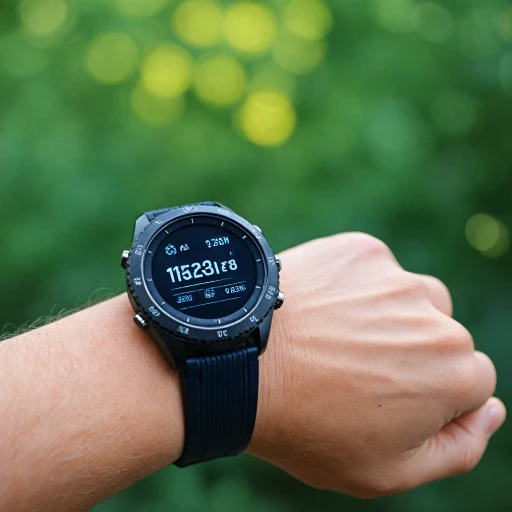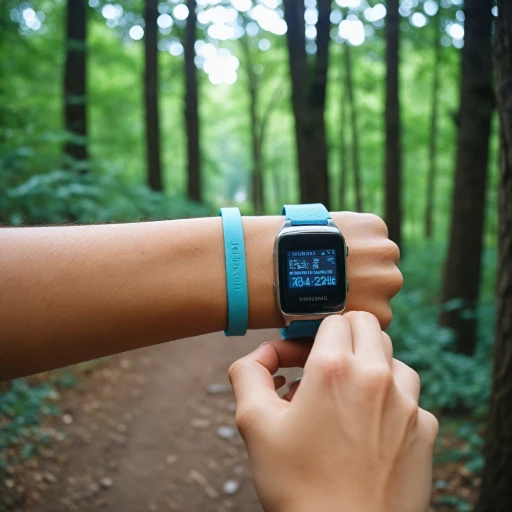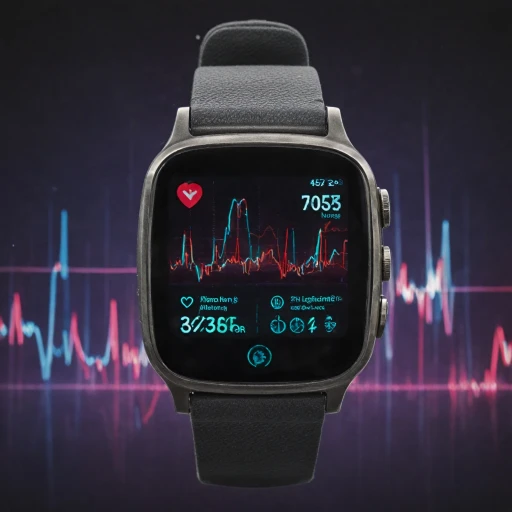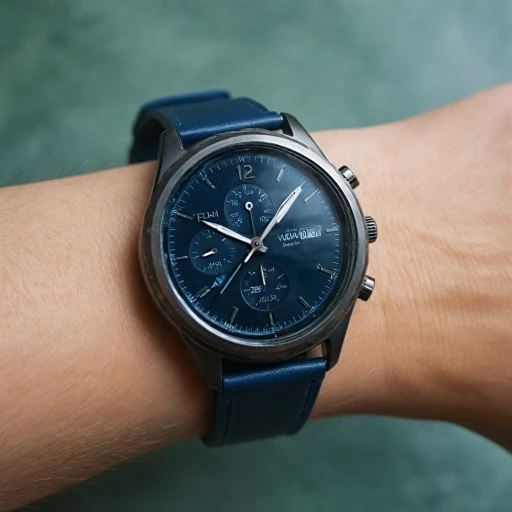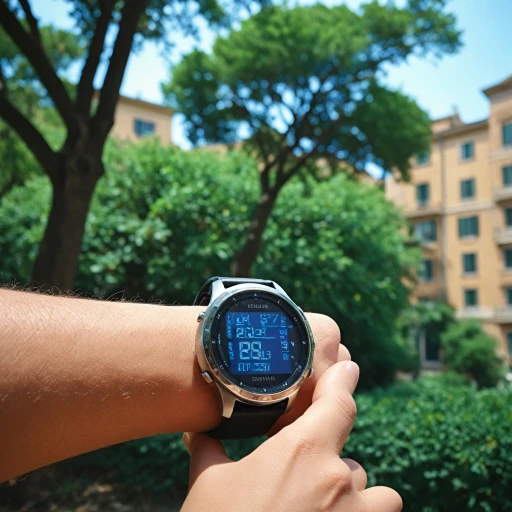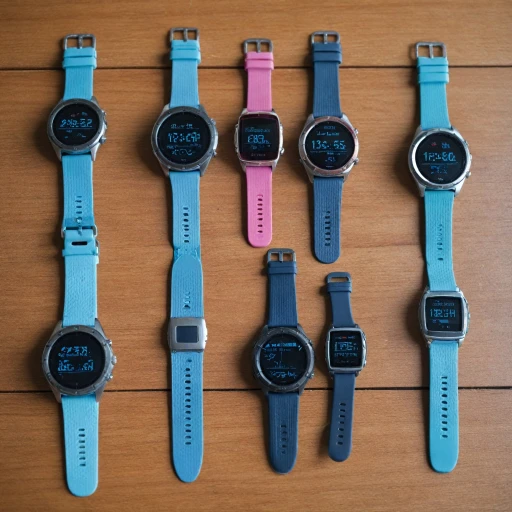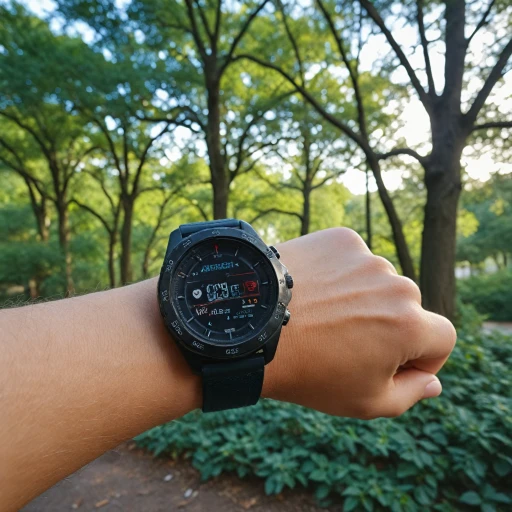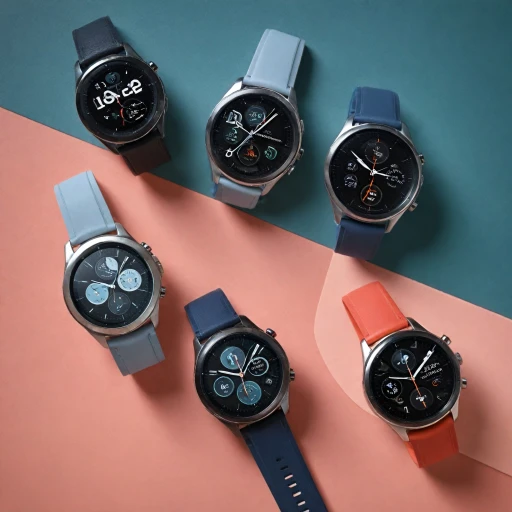
Understanding the Basics of Health Monitoring Watches
Introduction to Health Monitoring Watches
In recent years, health monitoring watches have become an essential part of personal wellness routines. These smart devices, often referred to as smartwatches, offer more than just the ability to tell time. They are equipped with advanced sensors and technologies that track various health metrics, making them invaluable tools for those looking to enhance their fitness and overall well-being.
What Makes a Health Monitoring Watch?
At their core, health monitoring watches are designed to track a range of health-related data. From heart rate monitoring to sleep tracking, these devices provide insights that can help you make informed decisions about your health. Popular brands like Apple Watch, Garmin, and Fitbit have set the standard with features like built-in GPS, water resistance, and long battery life, ensuring that users can rely on their devices for days without needing a recharge.
Choosing the Best Device for Your Needs
When selecting a health monitoring watch, it's important to consider what health metrics are most important to you. Whether it's tracking your heart rate during workouts, monitoring your blood pressure, or keeping an eye on your sleep patterns, different devices offer varying features. For instance, the best fitness trackers often include features like blood oxygen monitoring and fitness tracking capabilities, making them ideal for health enthusiasts.
Understanding the Price Range
The price of health monitoring watches can vary significantly. While some devices are available at a regular price, others might be found at a sale price, offering great value for their features. Brands like Amazfit and Galaxy Watch provide options that cater to different budgets, ensuring that there's a device for everyone, whether you're looking for a basic fitness tracker or a comprehensive health monitoring tool.
Key Health Metrics Tracked by Smartwatches
Explore Vital Metrics on Your Wrist
Smartwatches have evolved into essential devices for monitoring various health metrics, all while offering features that cater to both fitness enthusiasts and those who require constant health tracking. Some even consider these devices the best companions for achieving optimal wellness and fitness goals.- Heart Rate Monitoring: An integral feature in most smartwatches, heart rate monitoring provides insights into cardiovascular health. Apple Watch, Pixel Watch, and fitness groups like Fitbit lead the pack in offering precise heart rate measurements. These watches help track your heart's performance during workouts, rest, and even during sleep.
- Sleep Tracking: Another crucial metric, sleep tracking monitors the quality and the duration of your sleep. Devices like Oura Ring and Galaxy Watch excel in this category, helping you identify patterns and improve your overall sleep health. Quality sleep is directly linked to better mental well-being and physical health.
- Blood Oxygen Levels: Blood oxygen saturation is another health metric that smartwatches like Amazfit Band and Garmin have integrated. This feature helps in understanding your body's oxygen use, especially valuable during physical activities and high-altitude environments.
- Blood Pressure Monitoring: For individuals keen on monitoring their blood pressure, several devices offer this functionality. For more details on the benefits of such features, you can explore this blog on understanding the benefits of a blood pressure watch.
- Fitness Tracking: Fitness aficionados benefit greatly from built-in GPS features and water resistance in many devices, enhancing their workout routines. The market is teeming with various fitness trackers, each boasting unique strengths in battery life and data precision.
The Role of Smartwatches in Heart Health
The Impact of Smartwatches on Cardiovascular Health
Promoting Heart Health Through Sleep Analysis
Though not exclusively tied to heart health, sleep tracking offered by many smartwatches plays a crucial role. Insufficient sleep can adversely impact heart rates, blood pressure, and overall cardiovascular health. Devices with robust battery life often ensure consistent sleep data, enabling users to understand their habits and adjust for better heart health outcomes. With models from Garmin to Fitbit, the combination of heart rate monitoring and sleep tracking provides a more complete picture of one's health. Certainly, the best use of a smartwatch or fitness tracker is when it serves as a genuine aid in managing and improving your heart health, thanks to its extensive monitoring capabilities. The modern marvels of technology have undoubtedly brought a new dimension to personal health management, blending seamlessly into daily life while inadvertently encouraging healthier choices.Sleep Tracking and Its Impact on Well-being
Improving Restfulness with Advanced Sleep Monitoring
Quality sleep is crucial for maintaining optimal health and well-being. Many smartwatches, including top models like the Apple Watch, Garmin, and Fitbit, offer sophisticated sleep tracking features designed to monitor and enhance your sleep patterns. The best fitness trackers measure various sleep stages, including light, deep, and REM sleep, providing valuable insights into your sleep quality. Accurate sleep tracking is possible due to the integration of sensors that monitor your heart rate, movement, and sometimes even your blood oxygen levels. Over several days, these data points can reveal patterns in your sleep cycle, enabling you to adjust your habits for better rest.The Impact of Sleep Data on Your Health
Understanding the nuances of your sleep with the help of a smartwatch can lead to more informed health and lifestyle choices. For instance, consistent sleep tracking can highlight the impact of exercise on your sleep quality, demonstrating how integrating regular fitness routines can promote deeper and more restorative sleep. This is particularly beneficial for heart health, as restorative sleep contributes to a healthy heart rate and blood pressure levels. According to reviews, sleep data helps individuals identify factors that disrupt their sleep, such as inconsistent bedtimes or insufficient wind-down time. By making lifestyle changes based on these insights, users can improve their overall health fitness. Moreover, smartwatches with built-in GPS and water resistance, like the Galaxy Watch and Amazfit Band, ensure accurate tracking and durability, making them reliable companions through all stages of daily life.Considering Battery Life and Price
When evaluating the right smartwatch for your needs, consider the battery life and price in relation to the sleep tracking features offered. Models such as the Oura Ring optimize battery efficiency to capture sleep data over multiple nights without frequent charging. The regular and sale price of these devices may vary, so it's essential to balance your budget with the features offered. Understanding the price and feature correlation can guide you in selecting the most effective device for your health and wellness journey.Integrating Smartwatches into Your Fitness Routine
As smartwatches continue to evolve, they become more integral to our daily fitness routines. These devices, ranging from the acclaimed Apple Watch to the reliable Garmin models, are not just a convenience but an essential part of health and well-being management. Leveraging their robust features, such as heart rate and blood pressure monitoring, can enhance your fitness journey.
Maximizing Daily Fitness Goals
Smartwatches offer a variety of tools to help you reach your daily fitness goals. Devices like the Fitbit or Galaxy Watch provide comprehensive fitness tracker options that go beyond counting steps. They allow for data collection on calories burned, distances traveled, and even incorporate built-in GPS for detailed path tracking. This enables users to strategize their workouts effectively, optimizing performance without compromising on health.
Monitors for Better Heart Health
Tracking your heart rate accurately can significantly impact heart health. A well-tracked heart rate ensures that you exercise within your target zones, preventing any unnecessary strain while promoting effective cardiac conditioning. Devices such as the Oura Ring or Amazfit Band prioritize these metrics, allowing timely identification of anomalies or irregularities.
Integrating Sleep and Fitness Data
The ability to combine sleep tracking with day-time fitness metrics is one of the core strengths of modern smartwatches. By analyzing how your sleep patterns—and considering factors like blood oxygen levels—affect daily performance, you can plan your exercise sessions more effectively. A poorly rested body may not perform optimally in workouts, illustrating the importance of aligning both sleep and exercise data for a holistic view of your health fitness.
Battery Life and Water Resistance
When choosing a smartwatch for fitness purposes, battery life and water resistance are critical features to consider. Longer battery life, as seen in models like the Pixel Watch, supports continuous monitoring for several days without interruption. Meanwhile, water resistance ensures that the device can withstand sweat and water exposure during both routine and intense workouts.
Integrating a smartwatch into your fitness plan provides a technologically advanced means to improve health and maintain motivation. However, it's essential to consider the regular price and sale price options to ensure the purchase aligns with your budget and needs. By harnessing the full capabilities of a smartwatch—be it through heart, activity, or sleep tracking—you not only set a foundation for improved physical health but also for a better, more informed approach to fitness.
Privacy and Data Security Concerns
Considering Privacy and Security in Your Health Companion
Smartwatches, while offering numerous benefits like heart rate tracking, blood oxygen monitoring, and fitness guidance, also come with essential considerations around data privacy and security. With your wearable device collecting a wealth of personal health information, from blood pressure to sleep tracking patterns, understanding how this data is handled is crucial. Modern smartwatches such as the Apple Watch, Garmin, and Fitbit often store and process data locally on the device and via the cloud. This dual-storage practice raises questions about data security and access. Here are some important privacy aspects to consider:- Data Encryption: Always ensure that your fitness tracker supports encryption for data stored on the device and during transmission to cloud services. This is a critical barrier against unauthorized access.
- User Consent: Upon setting up your device, confirm that you have control over who can access your data, and review the terms of service, as companies like Apple and Fitbit invest in explaining data protocols to earn user trust.
- Regular Updates: Manufacturers frequently release updates not only to improve battery life or introduce new features like built-in GPS, but also to patch vulnerabilities. Make a habit of keeping your software up-to-date.
- Third-party Apps: Consider potential data sharing with third-party applications synchronized with your watch. Evaluate permissions carefully, especially if fitness data is integrated into health or credit score apps.
- Data Deletion: Understand the process for data deletion. If you decide to opt-out from sync features, ensure your heart and health history can be deleted from both the device and any associated online profiles.

